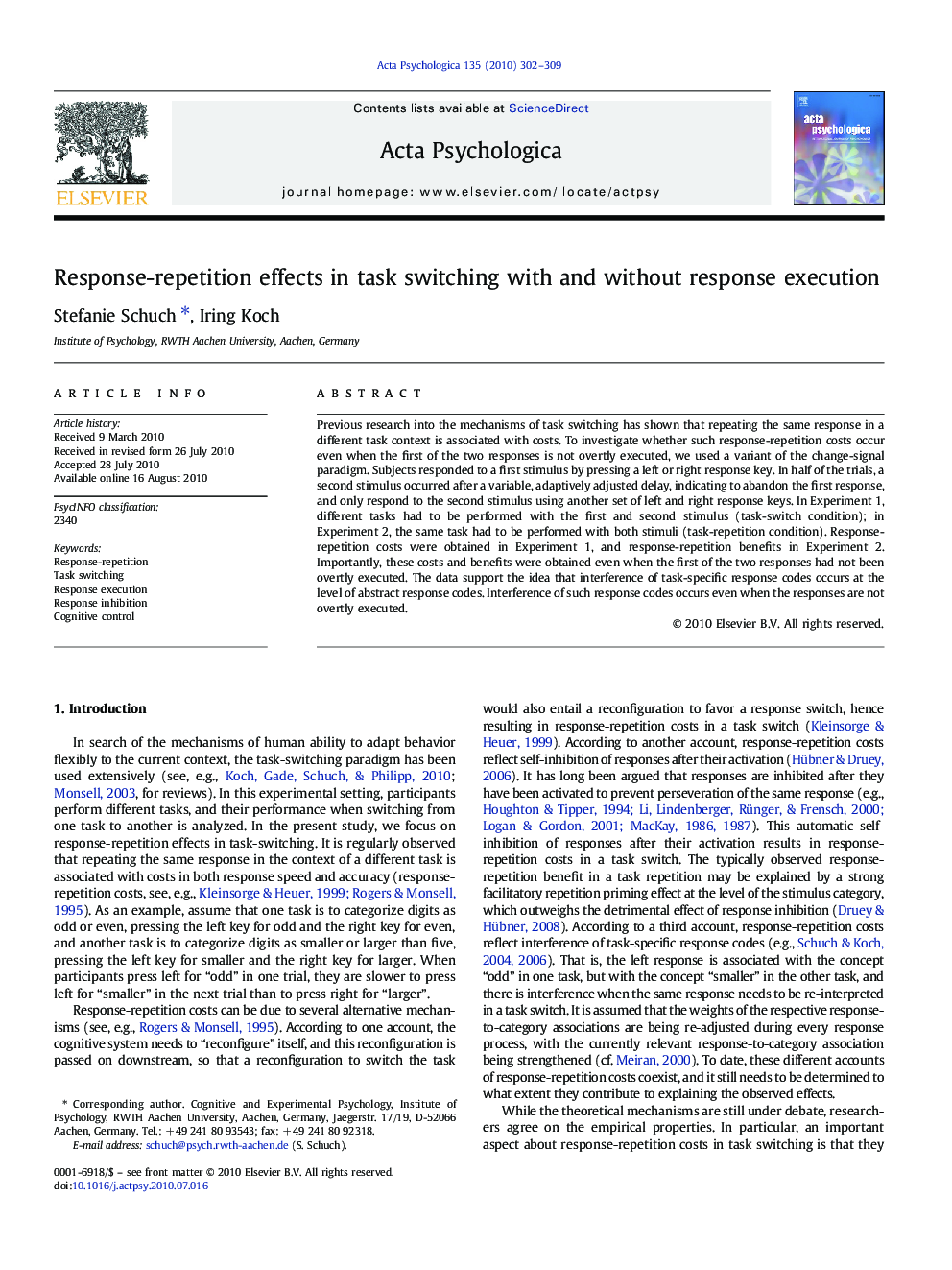| Article ID | Journal | Published Year | Pages | File Type |
|---|---|---|---|---|
| 10453875 | Acta Psychologica | 2010 | 8 Pages |
Abstract
Previous research into the mechanisms of task switching has shown that repeating the same response in a different task context is associated with costs. To investigate whether such response-repetition costs occur even when the first of the two responses is not overtly executed, we used a variant of the change-signal paradigm. Subjects responded to a first stimulus by pressing a left or right response key. In half of the trials, a second stimulus occurred after a variable, adaptively adjusted delay, indicating to abandon the first response, and only respond to the second stimulus using another set of left and right response keys. In Experiment 1, different tasks had to be performed with the first and second stimulus (task-switch condition); in Experiment 2, the same task had to be performed with both stimuli (task-repetition condition). Response-repetition costs were obtained in Experiment 1, and response-repetition benefits in Experiment 2. Importantly, these costs and benefits were obtained even when the first of the two responses had not been overtly executed. The data support the idea that interference of task-specific response codes occurs at the level of abstract response codes. Interference of such response codes occurs even when the responses are not overtly executed.
Related Topics
Life Sciences
Neuroscience
Cognitive Neuroscience
Authors
Stefanie Schuch, Iring Koch,
